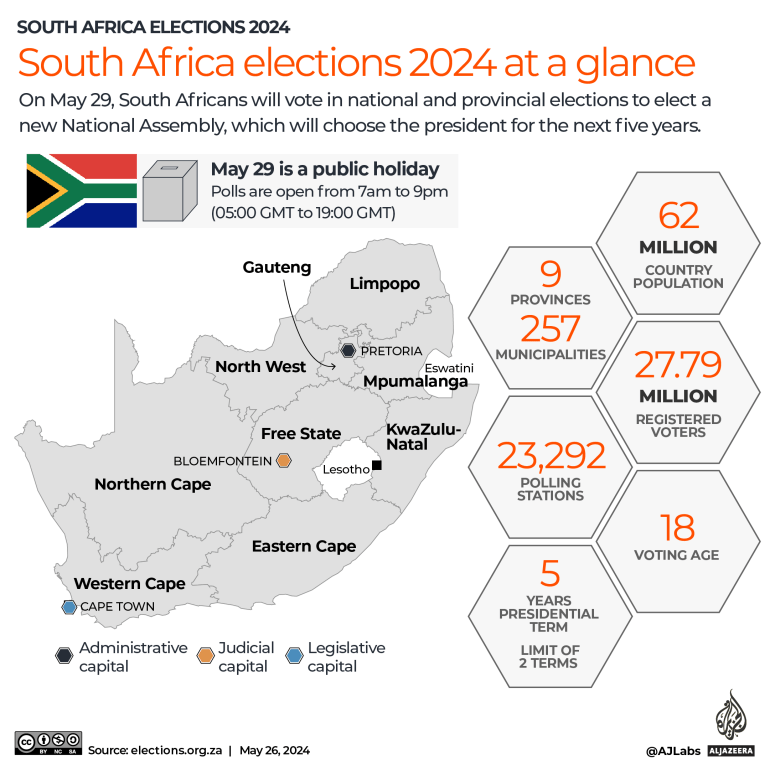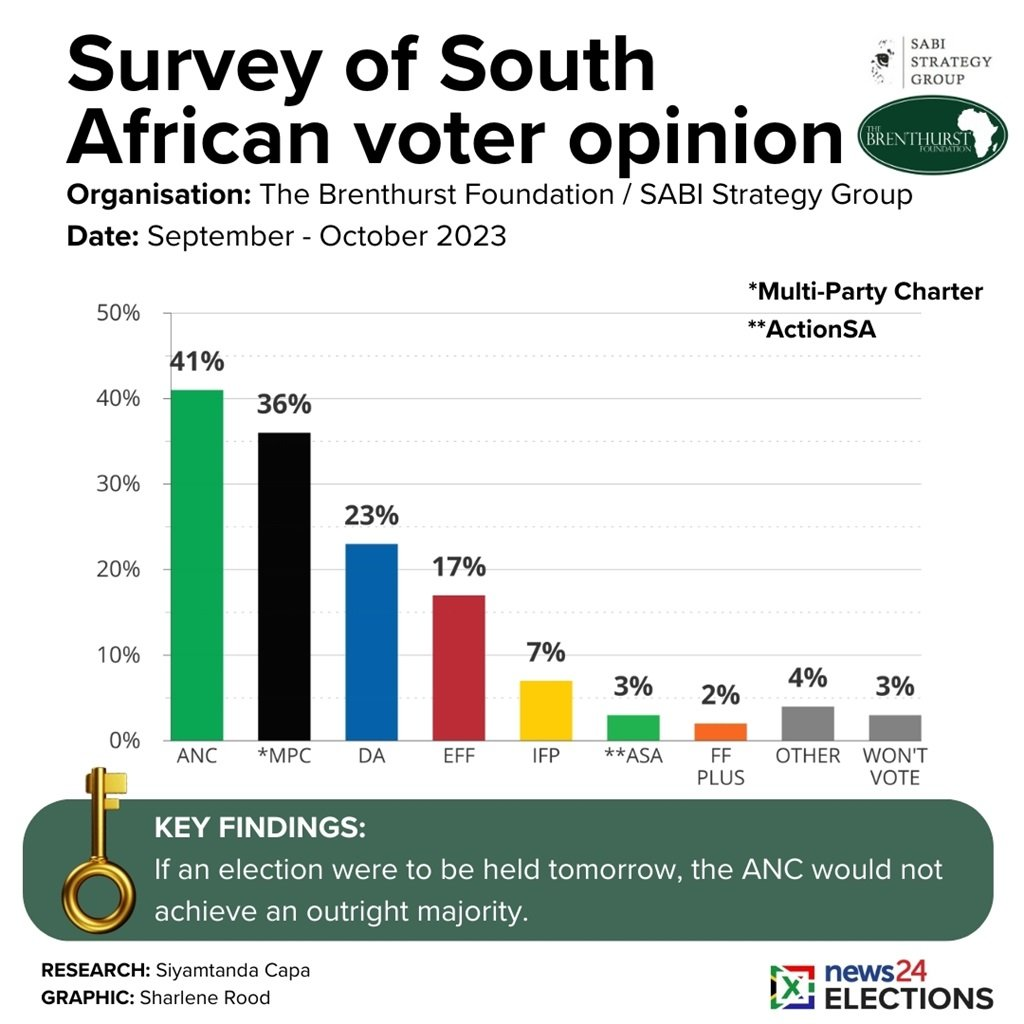South Africa braces for a crucial election on May 29, 2024, one that could reshape its democracy. The African National Congress (ANC) risks losing its majority for the first time since 1994. Voters express high dissatisfaction with corruption, economic decline, and inadequate services.
You Can Also Read: DO HIGH-PROFILE TORY EXITS SIGNAL AN IMPENDING ELECTORAL COLLAPSE?
The ANC’s long-standing dominance faces a challenge from rising support for opposition parties and new coalitions. This election mirrors the uncertainty and change that defined the 1994 vote. It marks a fundamental juncture for South Africa’s future, carrying significant implications for democracy and governance.
Background
South Africa’s general elections on May 29, 2024 will be its seventh since the end of apartheid in 1994. The ANC has governed since then but now confronts formidable challenges.

The party’s support has eroded due to corruption, economic decline, and failures in service delivery. Recent local elections saw the ANC lose key metro areas like Johannesburg and Tshwane.
New parties and independent candidates are now entering the battle. This election represents a critical juncture in South Africa’s democracy, reflecting a strong yearning for change.
South Africa’s Decline and Political Backlash
South Africa’s economy has grappled with significant challenges in recent years. GDP growth is forecasted to reach only 1.3% in 2024, with higher estimates placing it at 1.6%. Persistent issues include high unemployment, which stands at 32%, and rampant power outages due to the failing state-owned electricity provider, Eskom. These challenges have been compounded by high inflation rates, which have dampened consumer spending and investment.

The country also faces severe logistical constraints. Ongoing problems with rail and port infrastructure have hindered exports and economic growth. Recent reforms, such as the National Logistics Crisis Committee and the Freight Logistics Roadmap, aim to address these issues, but progress has been slow.

The ANC’s prolonged rule has been tarnished by corruption scandals and mismanagement. This has eroded public trust and led to a decline in the party’s support. In the 2021 municipal elections, the ANC received less than 50% of the vote nationwide for the first time since apartheid ended.
Economic decline and governance failures have spurred widespread protests and strikes. Issues like poverty, inequality, and inadequate service delivery continue to dominate public discourse. Voters are increasingly disillusioned, seeking alternatives to the ANC’s leadership.
In this climate, the 2024 election presents a critical moment for South Africa. With the ANC potentially losing its parliamentary majority, the election could result in a coalition government, marking a significant shift in the country’s political trajectory. The outcome will likely influence South Africa’s approach to economic and social challenges, determining the nation’s path forward.
Importance for South African Democracy
The 2024 election in South Africa carries immense importance for the country’s democracy. For the first time since 1994, the ANC may lose its majority, leading to potential coalition governments. This shift reflects growing public dissatisfaction with corruption, poor service delivery, and economic decline under ANC rule.

The election introduces a new dynamic with the inclusion of independent candidates and the rise of new parties like uMkhonto we Sizwe (MK) and RISE Mzansi. These changes signify a move towards a more pluralistic political landscape, offering voters alternatives to the longstanding dominance of the ANC.
This election also highlights a critical test for South Africa’s democratic institutions. Voter turnout and the public’s trust in the electoral process are crucial. Many South Africans are disillusioned with democracy, and this election could either restore or further diminish their faith in the system.
Possible Election Outcomes
- Scenario 1: ANC Wins Majority
The ANC securing over 50% of the vote seems unlikely due to declining support, according to current polls.
- Scenario 2: ANC Forms Coalition
If the ANC wins less than 50%, it may need to form a coalition, potentially with smaller parties or the Economic Freedom Fighters (EFF). Coalition dynamics could complicate governance.
- Scenario 3: Opposition Coalition
The Democratic Alliance (DA) could lead a coalition with opposition parties, including newly formed ones like uMkhonto we Sizwe (MK), prioritizing anti-corruption and economic reforms.
- Scenario 4: Fragmented Parliament
A fragmented parliament with no clear majority could lead to prolonged coalition negotiations and uncertainty, potentially weakening governmental stability.
Conclusion
The South Africa Election in 2024 is a critical moment for its democracy. With the ANC facing its toughest challenge yet, the results could reshape the political landscape. The potential for coalition governments introduces an entirely new dynamics in the nation’s governance.
This election will test public trust in democratic processes amid economic challenges and political dissatisfaction. The outcome will influence South Africa’s future path, determining whether it can address corruption, inequality, and unemployment effectively. Voter participation and informed choices are crucial for a stable and democratic future.


